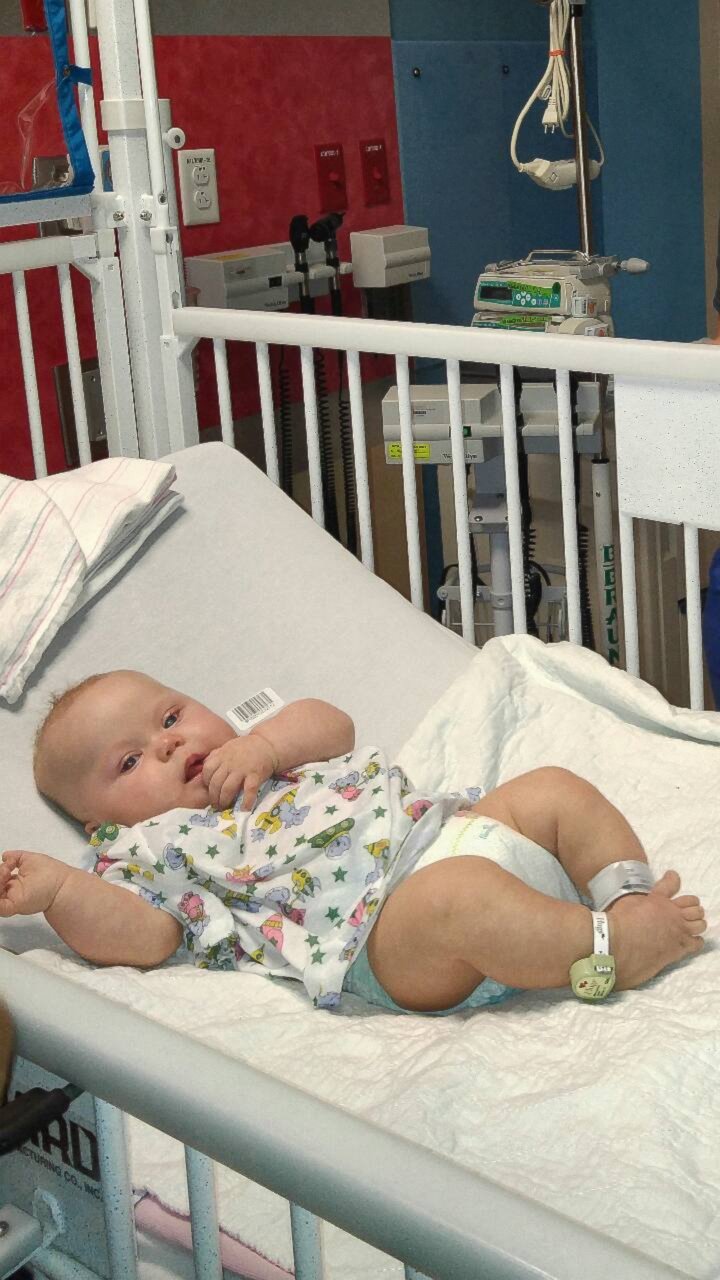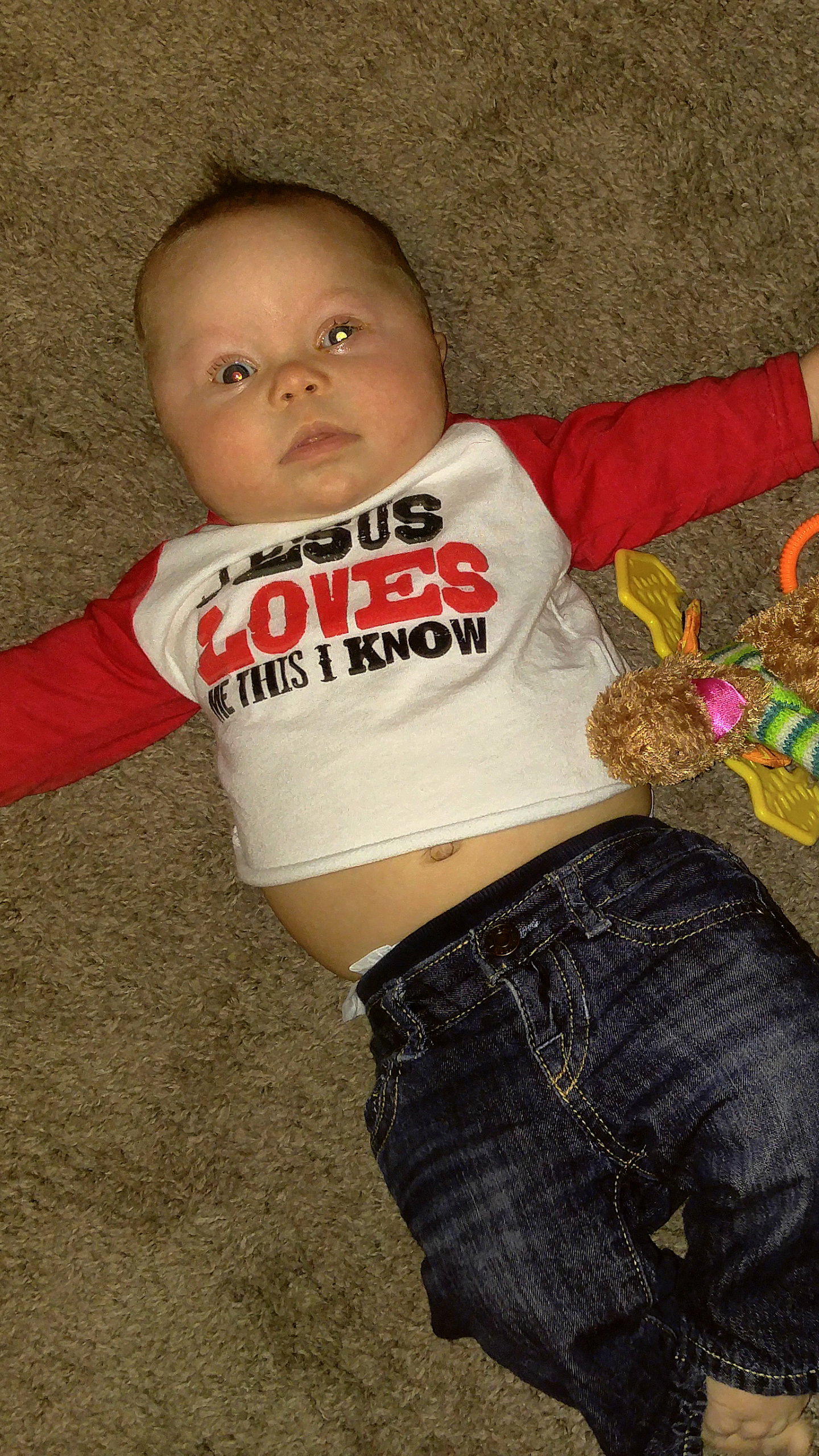Camera Flash Detected Baby's Eye Cancer, Arizona Mother Says
A tumor reflected the flash's light, producing a "glow" in the baby's left eye.
— -- The flash of a camera helped save the life of Ryder Temarantz, a 4-month-old baby boy from Scottsdale, Arizona.
Ryder's mother, Andrea Temarantz, told ABC News today that this past December she had begun noticing that camera flashes produced a "white glow" in Ryder's left eye.
"I just chalked it up to a bad camera phone," Temarantz, 36, said. "But even after I used a new Nikon D3300 DSLR my cousin got me for Christmas, the white glow was still there, so I took Ryder to his doctor."
On Jan. 5 Ryder was diagnosed with retinoblastoma in his left eye.
A white tumor mass in the back of Ryder's eye was reflecting light from camera flashes, producing the "glow" seen in many of his photos, Temarantz said.

After doing more research about online, Temarantz and her husband decided to take Ryder to Memorial Sloan Kettering Cancer Center in New York City, which has the world's largest team of physicians solely dedicated to patients with retinoblastoma.
The tumor in Ryder's left eye has not spread to other critical organs of his body, such as his brain, according to Dr. David H. Abramson, chief of the Ophthalmic Oncology Service at Memorial Sloan Kettering.

"Worldwide, 50 percent of the children who had retinoblastoma last year died," Abramson told ABC News today. "It's one of those cancers that can be fatal if not detected early, so it's great that his mom noticed it early and got it checked out."
Ryder will be undergoing three to six rounds of ophthalmic artery chemosurgery, Abramson said.
He explained that a 6-foot-long catheter as thin as angel hair pasta is threaded into a blood vessel of the groin. It goes through the belly, chest and neck and then put through "the one little blood vessel of the human eye to deliver high concentration and dosage of chemotherapy directly to the tumor."

The procedure is considered a better option for young patients because of the severe side effects of regular chemotherapy, Abramson said.
He said Ryder has a 99 percent chance of recovering from the cancer and will still have some vision in his left eye.
Temarantz told ABC News that despite everything, Ryder is "active and alert like nothing ever happened to him." She's grateful for Abramson and his team for the "miracle" they've given Ryder.
To follow along Ryder's journey to recovery, you can visit the website Temarantz and her family set up for him here.



